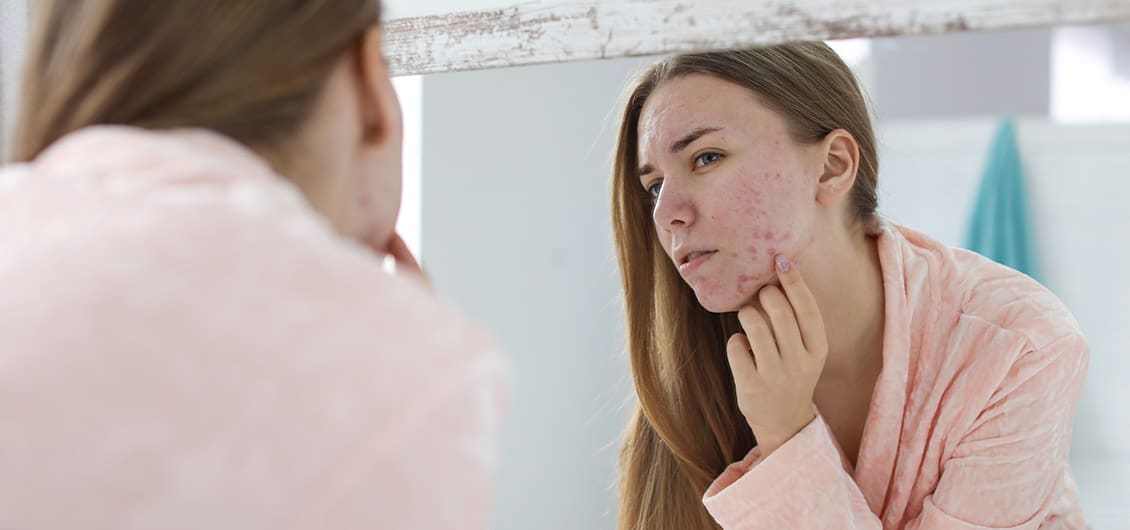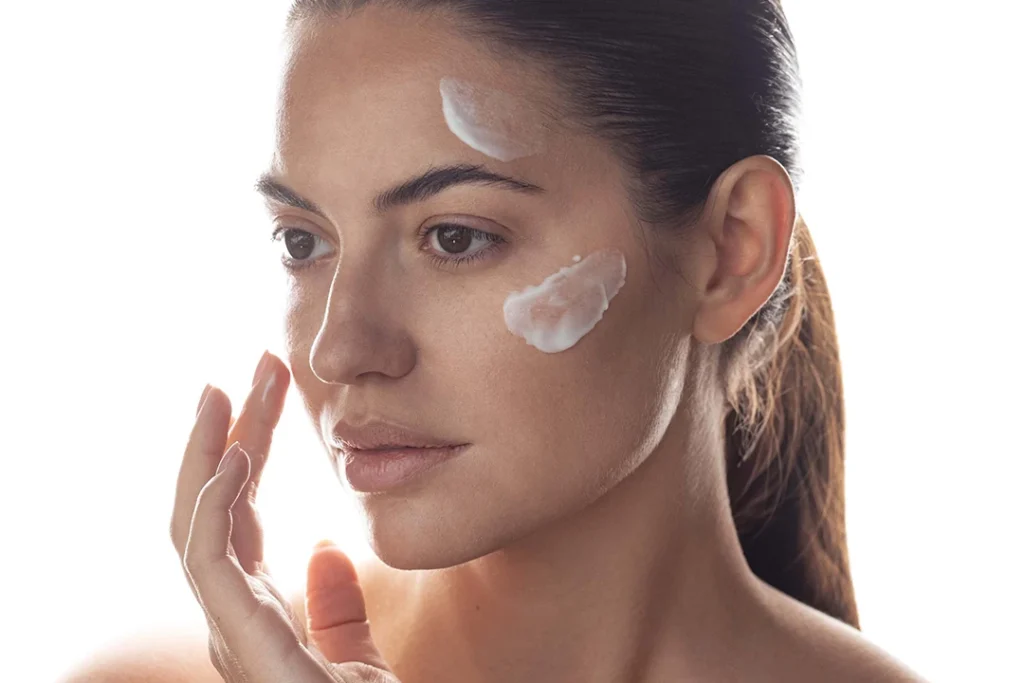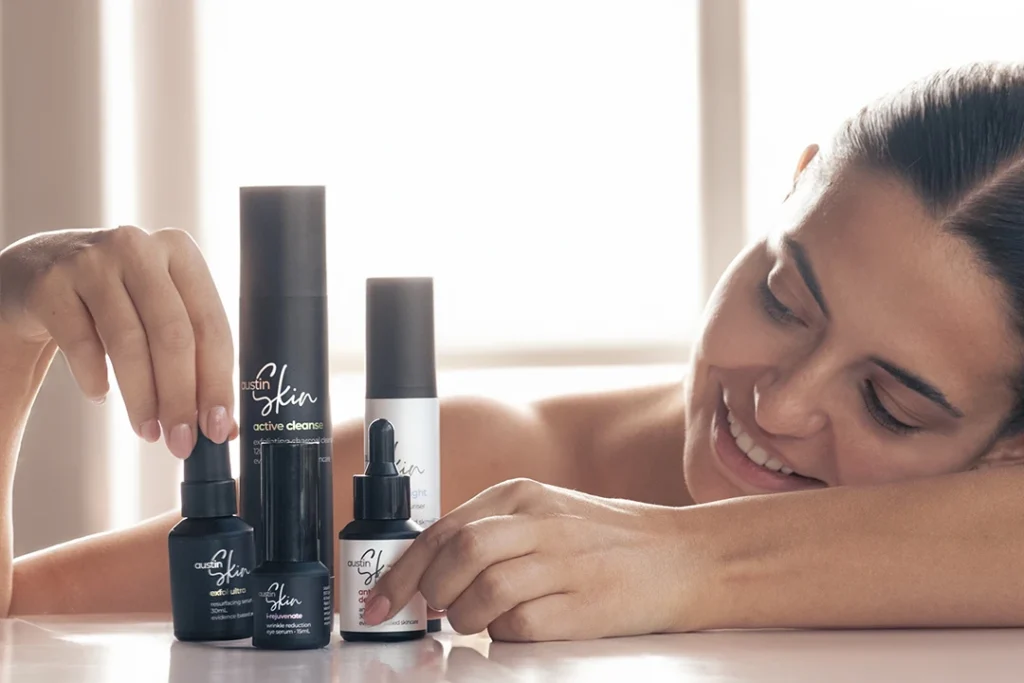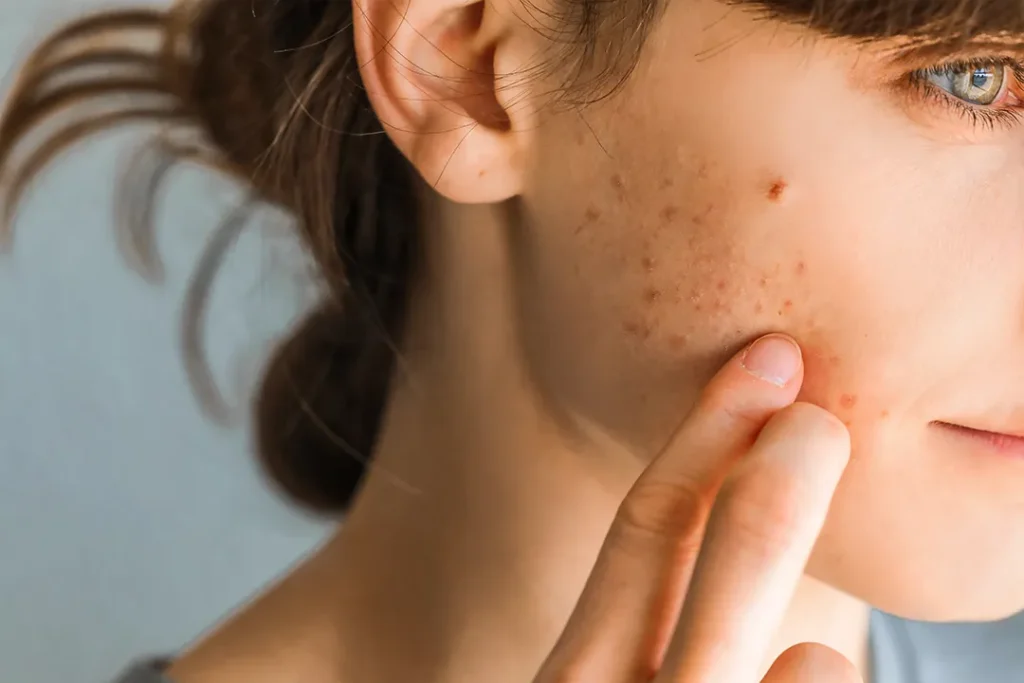Whys and Wherefores of Pesky Acne Spots
Acne is an extremely common skin problem. When hair follicles become plugged with dead skin cells and oils, you will experience:
- Blackheads – Small, blocked pores
- Nodules – Firm, painful lumps beneath the epidermis
- Pustules – Spots filled with visible pus
- Whiteheads – Small, firm, raised bumps with a white centre
An occasional spot is nothing to worry about. If your acne persists, however, you should have this medical skin condition assessed by a medical skin expert like Dr Austin.
Reasons Your Acne Comes Back
Acne, related in part to hormonal changes, often starts during puberty and continues into adulthood. Late onset acne is generally linked to genetics and/or lifestyle choices including:
- Excess weight
- Genetic factors
- Lack of Exercise
- Nutrition
- Stress
As you can see, a wide number of factors influence acne. Identifying the trigger(s) for breakouts will help you find the most effective treatment. Let’s go from the chin up…
Stubborn Acne on the Lower Face? Blame Hormones
Acne spots on your jaw and chin go deep…deeper than the average pimple. They are generally related to hormonal imbalances that trigger a condition known as cystic acne. “Unlike other types of acne, cystic acne does not generally respond to topical treatments,” explains Dr Austin. “This can make reappearing acne seem unconquerable, when a solution is very much available.”
Following an initial assessment, Dr Austin can then identify the best prescription treatment options to put a stop to the on-again/off-again relationship between your face and cystic acne:
- Oral antibiotics
- Hormonal treatments
- Prescription skin care
Don’t Pop Nose Spots, Treat Them
Nothing is more front-and-centre on your face than acne bumps on your nose, sometimes part of what’s called a ‘T-Zone’ breakout that also includes the forehead. (More about foreheads in a moment though) Nose blemishes are especially troublesome during teenage years, and are less likely to be about adolescent hormones and more likely to be about oil production.
T-Zone blemishes run the gamut from blackheads and whiteheads, to clogged pores and cysts. They occur when the skin’s natural oils (sebum) collect and form filaments that combine with dead skin and dirt. “A cleansing regimen, both night and day, helps curb acne recurrences,” says Dr Austin. “Allmedic’s 3 in 1 Active Exfoliating Scrub, which can be used as a mask once or twice a week, makes your skin feel squeaky clean…because it is.”
Chemical peels are also helpful in keeping pores clear.
Sweat Lodge: Why Forehead Acne is So Stubborn
Whether you’re sweating on the beach, in the gym, or simply carrying a heavy package up a flight of stairs, you’re contributing to forehead acne. Sweat sits on forehead skin where it attracts bacteria. Hats, a fringe, and sweatbands add to the problem, and if you’re someone who is constantly wiping your brow with your hand, your dirty little fingers aren’t doing your skin any favours.
You can fight back against sweat with a gentle face wash. It can help tame acne breakouts in the summer and all year round. To intensify the results, consider the Austin Clinic Silicone Cleansing Brush.
If acne and breakouts are giving you cause for concern, give us a call pronto.




